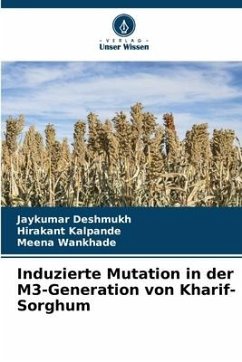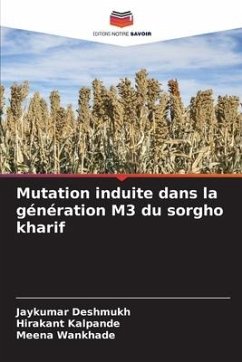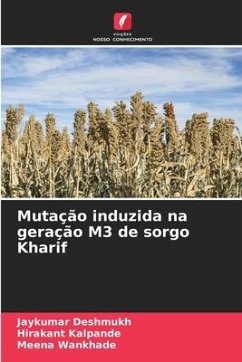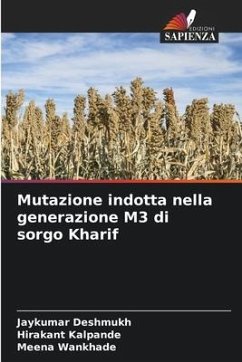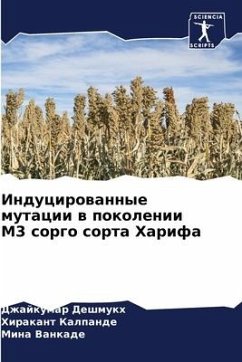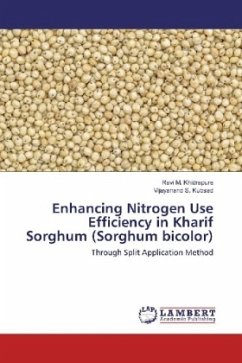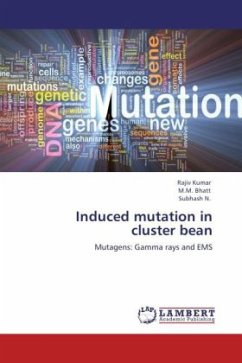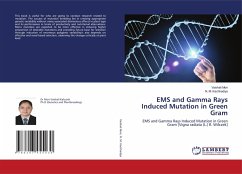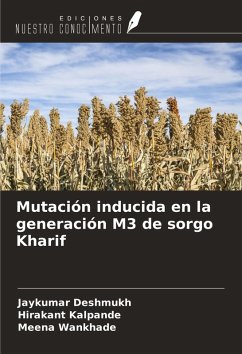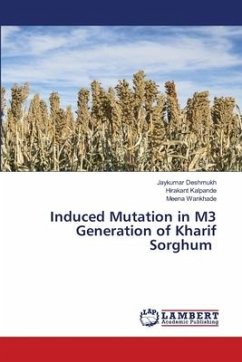
Induced Mutation in M3 Generation of Kharif Sorghum
Versandkostenfrei!
Versandfertig in 6-10 Tagen
40,99 €
inkl. MwSt.

PAYBACK Punkte
20 °P sammeln!
Sorghum is grown in India in places with 500 to 1000 mm of yearly rainfall and temperatures ranging from 26 to 32 0C. Plains and plateaus below 100m elevation provide good opportunities for effective crop cultivation in two seasons: Kharif as a rainfed crop and Rabi as a protected irrigated crop, with 60 and 40 percent cultivation, respectively. Sorghum [Sorghum bicolor (L.) Moench] is a diploid (2n = 2x = 20) cross pollinated crop from the poaceae family. After wheat, maize, rice, and barley, sorghum is the most essential cereal grain. The induced mutagenesis in kharif sorghum has been design...
Sorghum is grown in India in places with 500 to 1000 mm of yearly rainfall and temperatures ranging from 26 to 32 0C. Plains and plateaus below 100m elevation provide good opportunities for effective crop cultivation in two seasons: Kharif as a rainfed crop and Rabi as a protected irrigated crop, with 60 and 40 percent cultivation, respectively. Sorghum [Sorghum bicolor (L.) Moench] is a diploid (2n = 2x = 20) cross pollinated crop from the poaceae family. After wheat, maize, rice, and barley, sorghum is the most essential cereal grain. The induced mutagenesis in kharif sorghum has been designed to study mutagenic effects of physical (Gamma-irradiation) and physical and chemical mutagen combination treatment for yield and yield components, to study induced changes with particular reference to genetic parameters of various characters and to identify desirable mutants for reduced height, earliness and other yield related traits.



